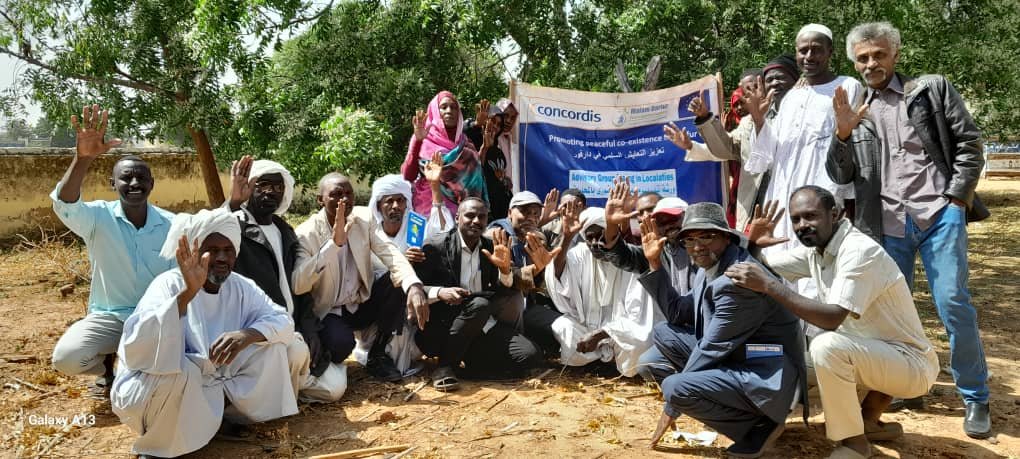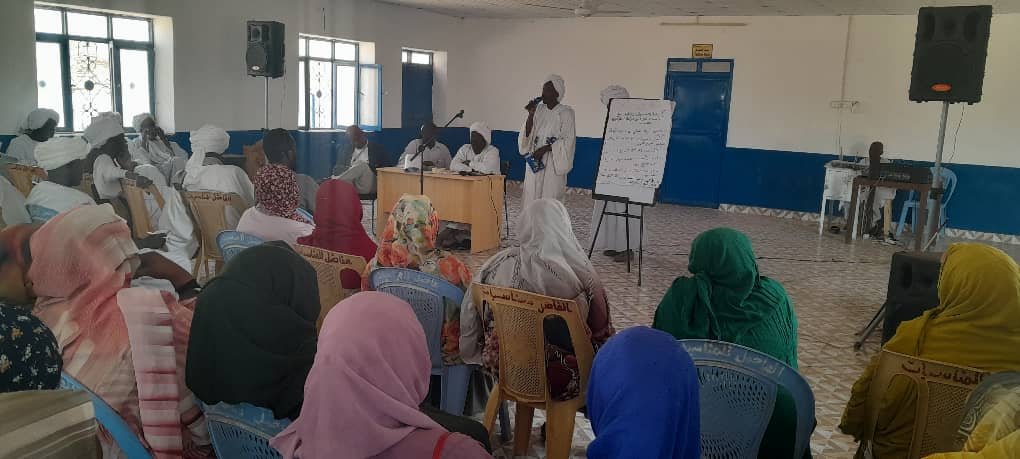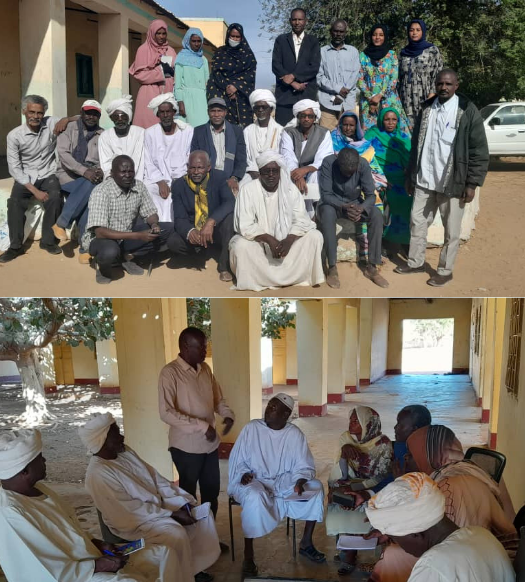Central African Borderlands Programme

Darfur
Background
Since 2004, Sudan has been at the heart of Concordis International's peacebuilding mission, with a long history of involvement in both Sudan and South Sudan. In 2021, local herders who had witnessed our peacebuilding work across the border in the Central African Republic during the dry season invited us to extend our efforts to Darfur.
Concordis works exclusively by invitation, ensuring we address the real needs of our communities. This invitation from the Darfuri herders highlighted their trust in our ability to support sustainable peace. We have always believed in supporting local people in finding long-term solutions to disputes, and this project has been no different.
However, the situation in Sudan has dramatically changed since the war broke out in April 2023, making daily life difficult and dangerous for many. Nyala, the capital of South Darfur, became a front line of conflict, with the RSF controlling one side and the SAF on the other. This division has resulted in immense challenges, yet despite the ongoing conflict, Concordis has remained committed to its mission, working closely with national staff and local partners to continue building peace.
-
The war has made movement across Darfur risky, with intense fighting taking place in residential neighbourhoods and strategic locations. In Nyala, for example, families are caught between warring factions. Yet, in the midst of this violence, there are still opportunities for peacebuilding.
Concordis has adapted to these crises, relying on our national staff, local partners, and peacebuilders to keep our work going. We believe working with local teams, especially when international travel is limited or impossible, is effective and sustainable.
Our team in South Darfur, led by local staff, has built strong relationships with local government officials, community leaders, and civil society organizations such as Malam Darfur Peace and Development (MDPD). These partnerships have been critical in helping us understand the complex needs of the region and shaping our peacebuilding efforts accordingly.
Training in security and safeguarding has been a key component of our approach, ensuring both our team’s safety and the protection of the vulnerable populations we work with.
Working Area
Our Approach
-
Our peacebuilding initiatives have had a significant impact in Darfur despite the challenges posed by the ongoing war.
One notable achievement was facilitating an initiative where 80 traditional leaders across South Darfur signed a document calling on their communities to maintain peace. This document emphasized the importance of protecting vital infrastructure—schools, clinics, and markets—that support the community’s everyday needs, regardless of ongoing conflicts.
Concordis staff have also travelled throughout West Kordofan, working alongside community leaders such as Misseriya Paramount Chief Baba Moktar, who has used his influence to prevent violence from spreading into the region. His key message, shared with community members, is that despite the conflicts, they must not destroy the structures—schools, clinics, markets—their communities depend on. This message has resonated widely, helping to preserve essential services amidst the chaos of war.
Concordis’ Sudanese staff's dedication has been a driving force behind these efforts. Many of them are from the region and have voluntarily committed their time to preventing the spread of violence. Their efforts have been met with enthusiastic local support as communities across Darfur recognize the value of Concordis’ peacebuilding approach and its positive impact on their lives.
Over the past one year, our peacebuilding activities in Darfur have included the training of:
220 Advisory Groups (AGs)
61 Women Peace Ambassadors (WPAs)
46 Peace Committees (PCs).
These groups have been critical in resolving 33 local conflicts, with strong community support for the resulting peace agreements.
In addition to conflict resolution, our work has focused on empowering women through peacebuilding and economic development initiatives. Through pilot projects:
175 women received peacebuilding and small grant management training
89 grants were disbursed.
Allowing them to establish businesses and contribute to their communities' economic resilience.
Concordis has also organised:
13 peace conferences
9 town halls - briefings for the community on what has been agreed. Stakeholders from across the region come together to discuss and validate peace agreements and consultation findings.
These gatherings have been essential in building mutual understanding and fostering long-term commitments to peaceful coexistence.
Conclusion
Despite the ongoing conflict, these initiatives demonstrate that local peacebuilders are taking proactive steps to stop the violence in their communities. Concordis remains committed to supporting these efforts and ensuring every opportunity to amplify their work is pursued.












